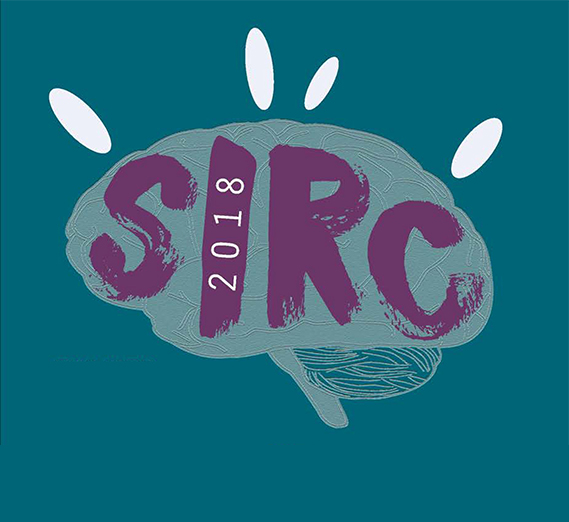Student Researchers Tackle Civics, Economics & More

By Alyssa Cink ('20)
Where do Chilean voter turnout, the use of religious rituals for economic advancement in proto-capitalist London, and the role of sleep in neurodegenerative diseases congregate under the same roof?
Spring 2018 marked the 15th Spokane Intercollegiate Research Conference (SIRC). Whitworth University hosted students from Eastern Washington University, Spokane Community College, and 100 students from Gonzaga, each of them gathering for the recognition of undergraduate research.
Students participating in SIRC 2018 selected between types of presentations: the traditional research paper, the research poster and the works-in-progress. The latter could be submitted for the Ideas Exchange Session, where faculty and other attendees shared feedback with the students about their developing research.
Five Zags were recognized for their research at the conference. From the Class of ’18, Alicia Heiser, Jessica Albinson and Matthew Sheber Howard (tied for third) won the first, second and third place awards for their research papers. Haylee Hamilton (’19) and Jordan Cossette (’18) won first and third place awards for their research posters.
Heiser, first-place winner of the paper presentation sessions, wrote about declining voter turnout in Chile as part of her independent study. To gather her research, Heiser traveled to Chile and conducted, translated, and analyzed 10 interviews. After graduating from Gonzaga, she now works as the Grants Program Associate at the Innovia Foundation.
“To me, voter turnout is integral to a healthy and robust civil society. Because I am so invested in this topic, I really enjoyed being able to share it.” Heiser says. “This independent study was not a required component of my International Relations degree, so participating in SIRC 2018 gave me the opportunity to present my research, as well as gain formal experience at a research conference, which will be very valuable in the future when I return to graduate school. I left SIRC 2018 feeling more confident in my academic research abilities and excited for future research opportunities.”
Hamilton, winner of the poster presentation sessions, was inspired to explore the relatively under-examined role of sleep in ALS, a neurodegenerative disease. Hamilton is a senior Biology major concentrating in research, and is applying for PhD programs in neuroscience, and molecular and cellular biology.
“It was most interesting to hear the variety of questions that I received from those who saw my poster, since this research is definitely up and coming in the field of neuroscience,” Hamilton says. “It was also rewarding to be able to share one of my passions with other people and see their genuine interest as well.”
Sheber Howard presented a condensed version of his English major senior thesis about the role of religious rituals in London’s social climates, as portrayed in “A Chaste Maid in Cheapside,” “Eastward Ho,” and “The Alchemist.” He’s now teaching high school English in Oklahoma City and simultaneously earning his master’s in education.
“Having to edit my thesis down so drastically forced me to re-structure my argument, retaining only the most essential points. The experience certainly made me a better writer and editor, as it was essential for me to not only hone in on only the crux of the arguments, but also to figure out how best to communicate those ideas,” Sheber Howard says.
Since its inception, SIRC has strived to give students from all majors an environment for exercising their skills as public speakers, sharing their research and engaging with research in the academic community. Students were required to present original, faculty-advised work, with guidelines specific to the type of presentation. Beyond these guidelines, however, the conference’s 13 research paper sessions, three poster sessions, and single Ideas Exchange session welcomed a diverse medley of project themes. English, computer science, biology, mathematics, politics, gender studies, social media studies, film studies, visual art, engineering, and intersections of the above, are some of the topics that found a home in the presentations at SIRC 2018.
Sean Swan, a professor in Gonzaga’s political science department, says SIRC is an especially worthwhile opportunity for students who are academically interested in research, looking to enhance their resumes, or want to overcome anxiety about research presentations.
“It kind of demystifies conferences and presentations,” Dr. Swan explains. “[Students are] getting over that little hurdle of being afraid, thinking conferences are huge, big, intimidating things, and they’re not.”
Dr. Swan has encouraged students to participate by incorporating SIRC into some of his courses. He also hopes students interested in SIRC, and faculty interested in mentoring student projects, will get a head start during the fall semester, leaving plenty of time to prepare.
